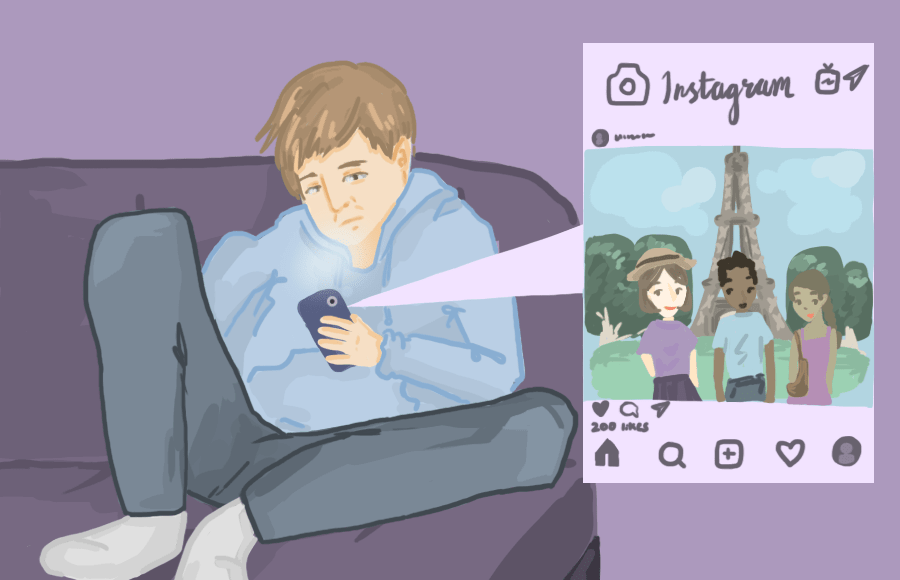
The fear of missing out, or more commonly referred to as FOMO, is a term that many of us are familiar with and experience. The phenomenon alludes to the perception that others are having more fun or living better lives than us. Involving a sense of envy and jealousy, FOMO inflicts feelings of anxiety and depression and ultimately damages one’s self-esteem. Whether it is a big party or a backcountry ski trip, it leads to an overarching sense of helplessness that you are missing out.
In this day and age, social media allows users to highlight moments and experiences creating the illusion that they live a picture-perfect life. With approximately 3.5 billion users, it is not surprising that social media has exacerbated the FOMO phenomenon. Presenting a platform for bragging, people are constantly comparing their lives with those they follow. It is easy to think that you are not having as much fun or lead a less impressive life when your sense of normal is skewed. Social media usage and FOMO become a vicious cycle, causing a higher usage and as a result, a more intensified feeling of missing out.

On top of feelings of insecurity and low self-esteem, FOMO has many detrimental effects on our physical and mental health. People experience mood swings, loneliness, reduced self-esteem, extreme social anxiety, depression, and feelings of inferiority. As a result, the solution for many is to engage in unhealthy behaviors, such as drug and alcohol use. Additionally, rather than enjoying an experience in the moment, people are hyperfocused on capturing proof that they are engaging in a jealous-worthy activity.
How do we minimize this fear of missing out? We all know that engaging in excessive social media behavior increases FOMO and is a self-perpetuating cycle. Therefore, decreasing exposure to what provokes FOMO will positively impact self-esteem and happiness. For those of us who are passionate about the outdoors, particularly skiing, it is incredibly difficult to see others getting face shots in the backcountry while stuck working an office job. Rather than seeking out those triggers, focus on gratitude for what you do have.